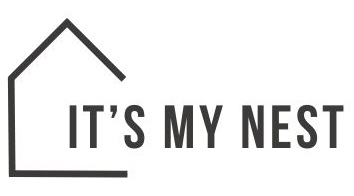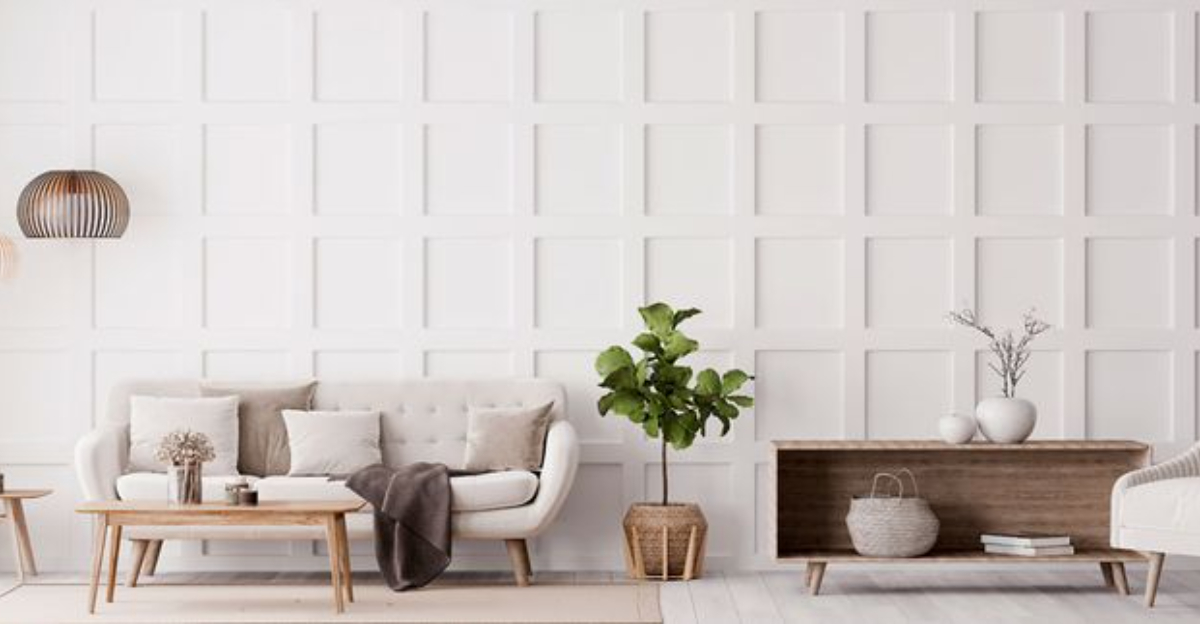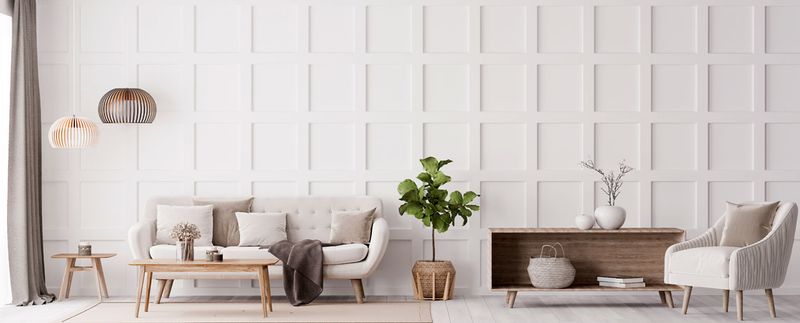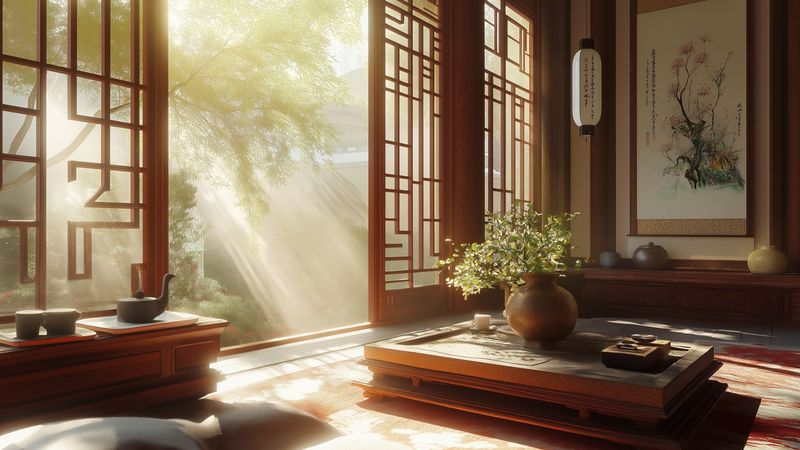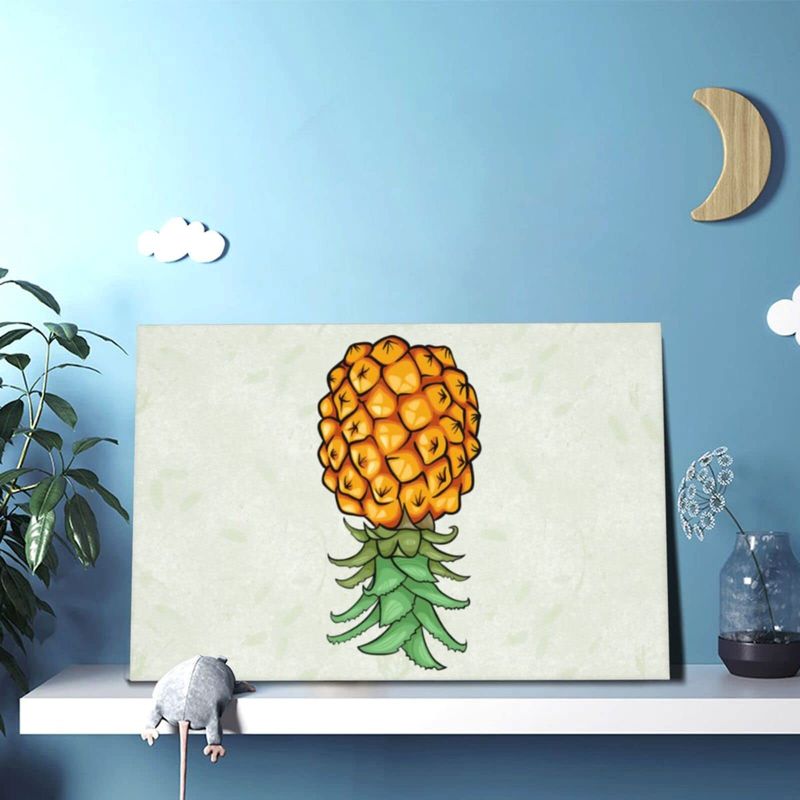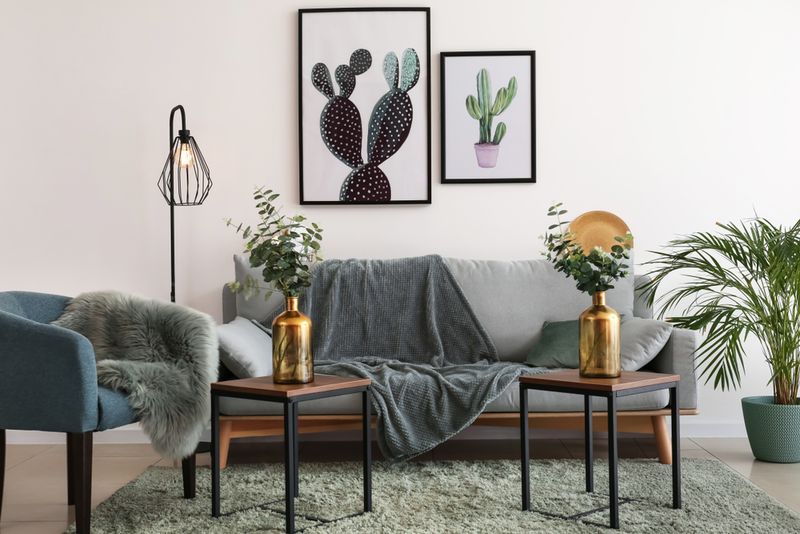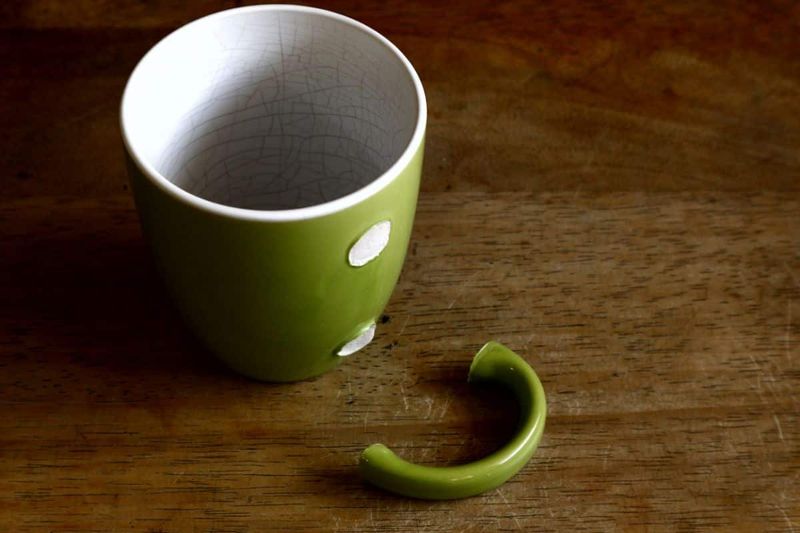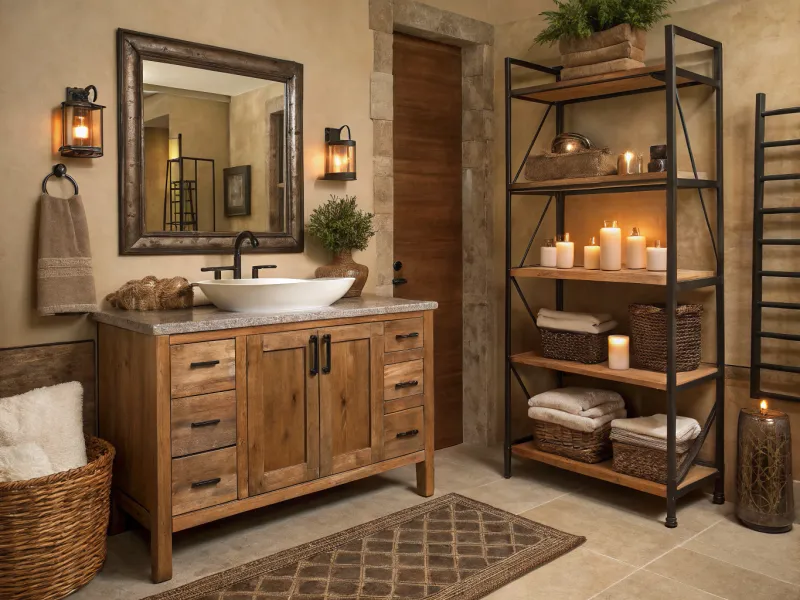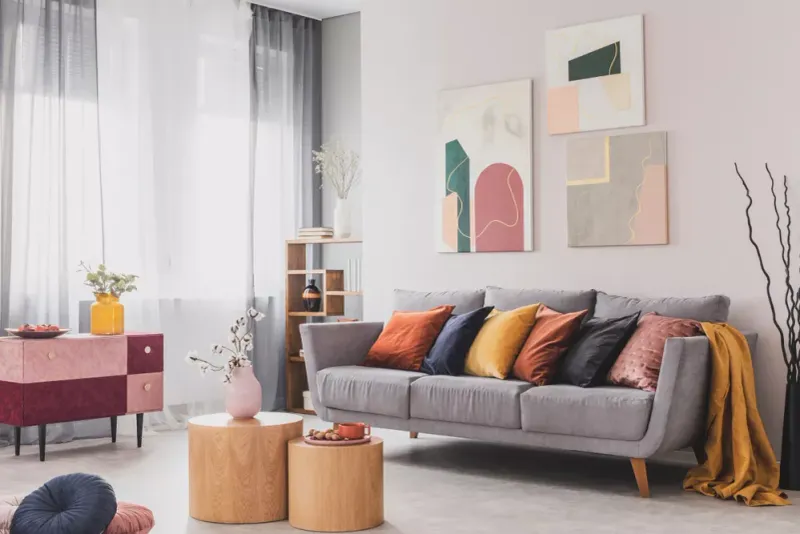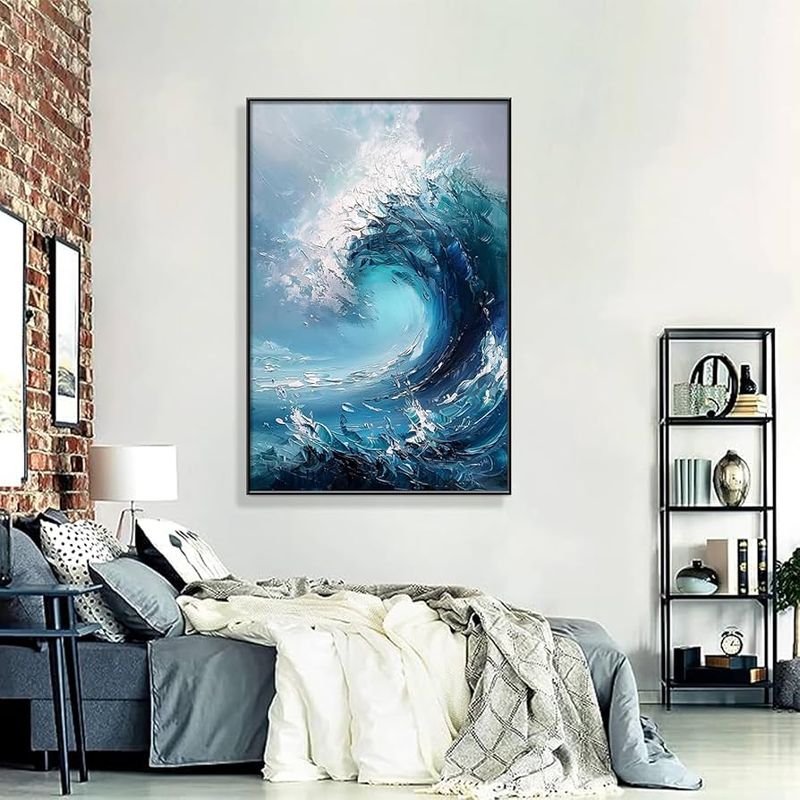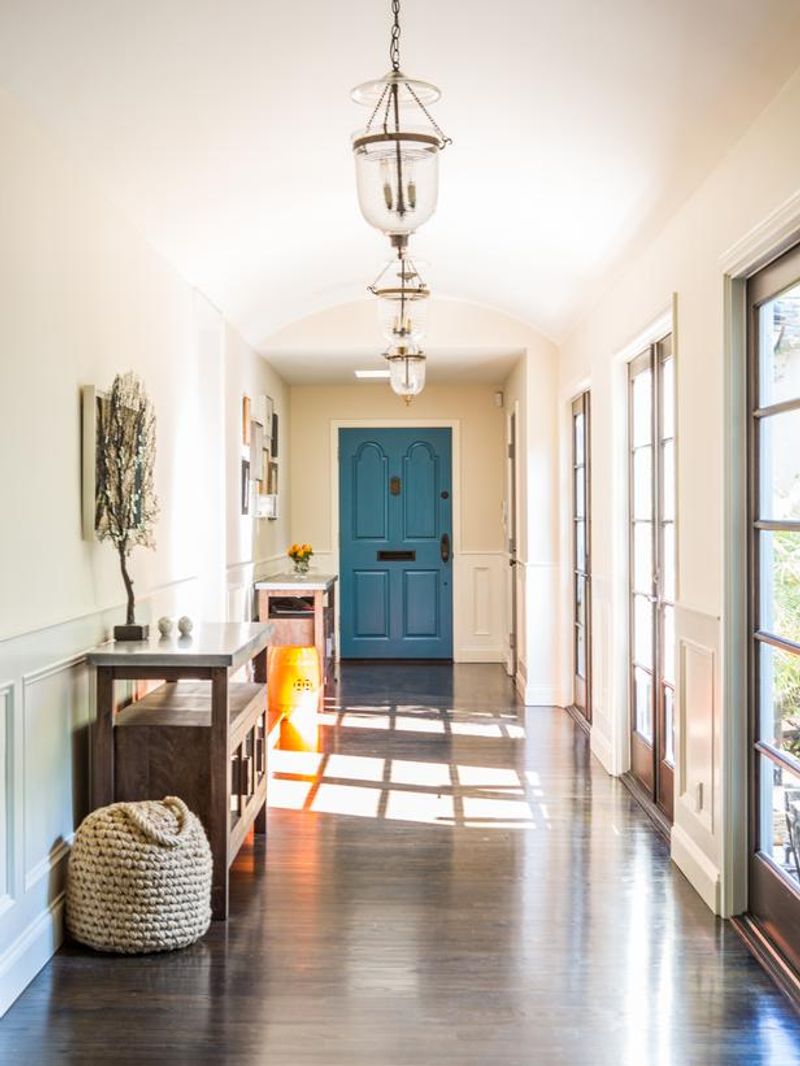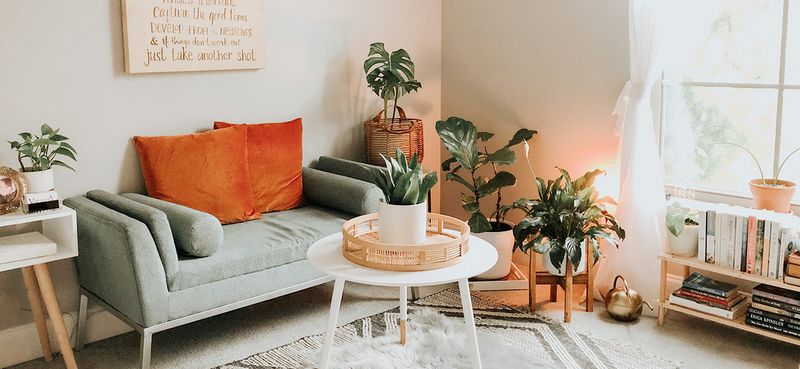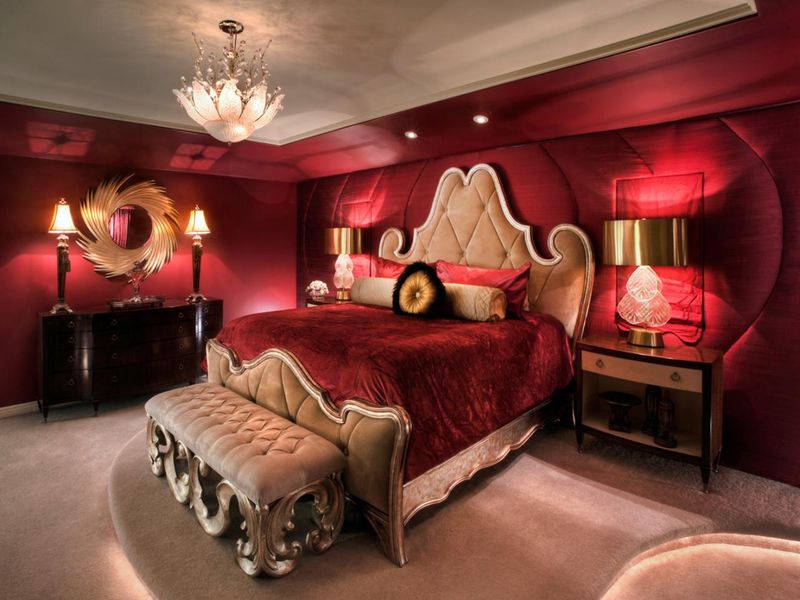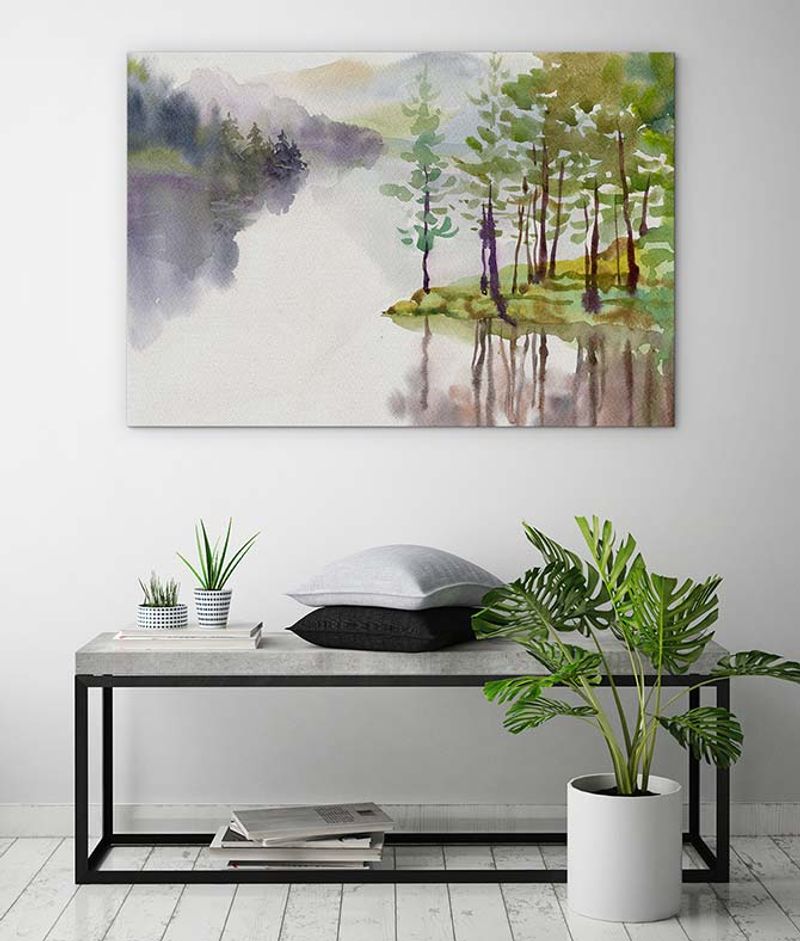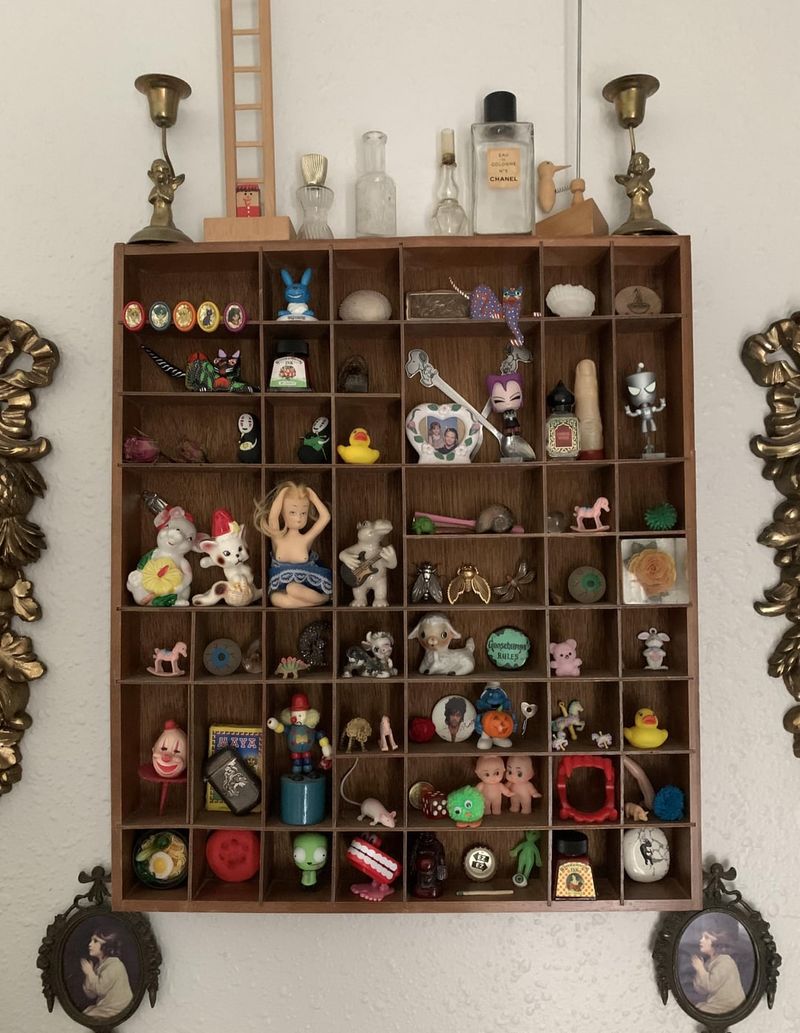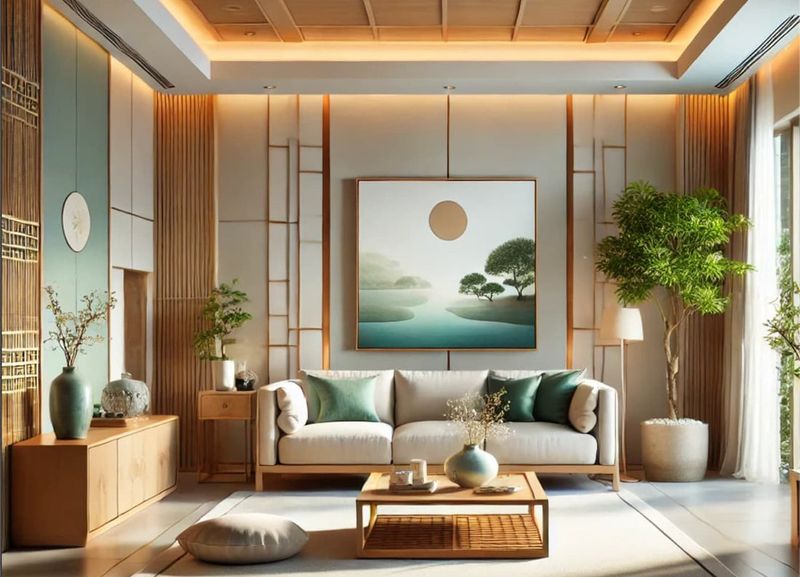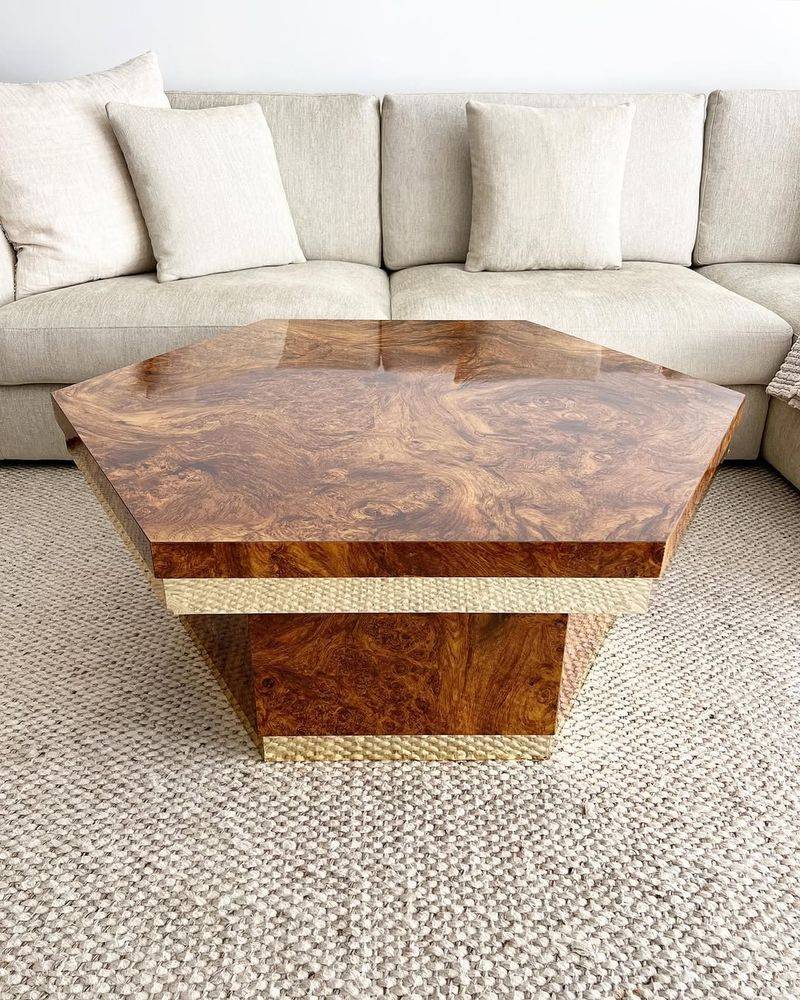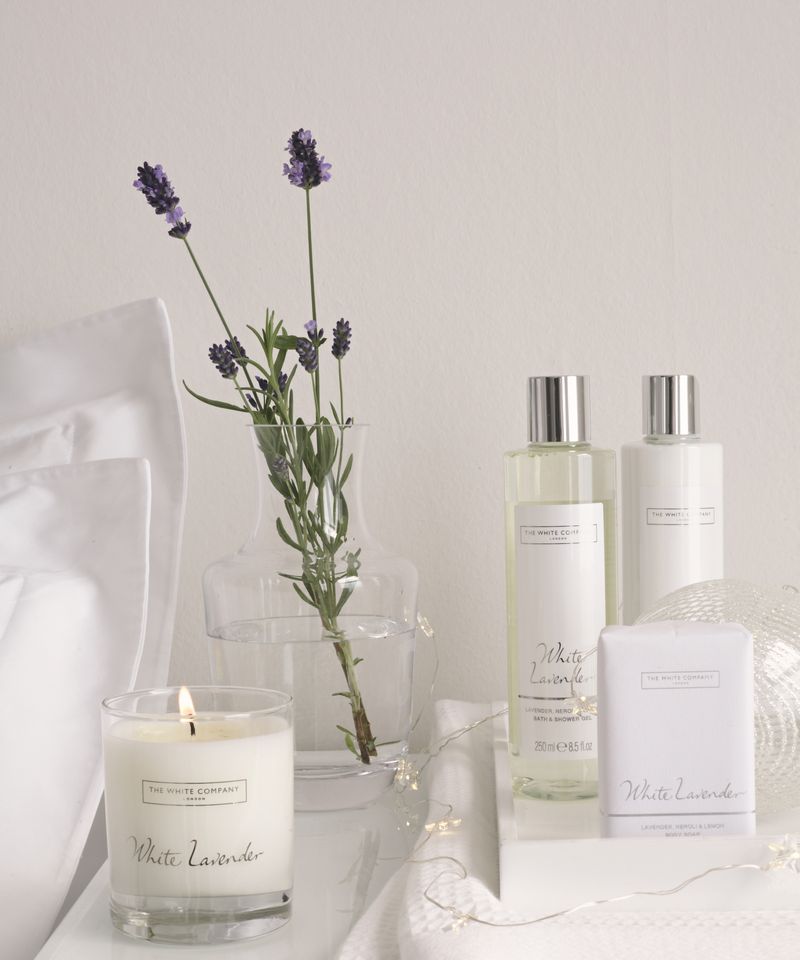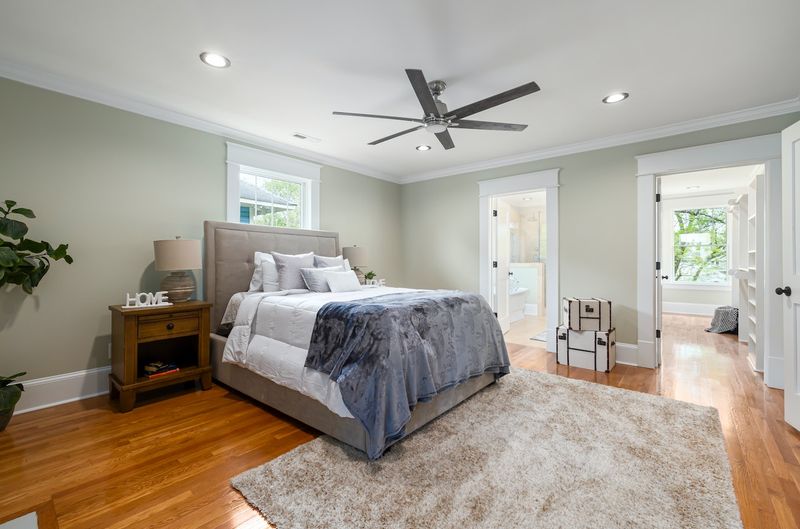Feng Shui isn’t just about crystals and wind chimes – it’s the art of designing spaces that feel right. Ever walked into a room and felt instantly relaxed… or weirdly tense for no reason? That’s energy talking.
Whether you’re a full-blown energy-flow enthusiast or just tired of your home feeling “off,” this guide breaks down 20 essential décor dos and don’ts to help your space feel more balanced, supportive, and, yes – lucky.
From where you place your mirror to what’s lurking in your closet, I’m diving deep into the details that can shift the whole vibe of your home.
DO: Clear the Clutter
A clutter-free space is like a breath of fresh air. It allows energy to flow freely, enhancing your home’s vitality. Keeping surfaces free of unnecessary items not only helps in maintaining cleanliness but also opens up room for positivity.
When in doubt, ask yourself if an item sparks joy. If not, it may be time to say goodbye. This isn’t just about aesthetics; it’s about creating a calming environment. Let’s face it, a tidy room is a happy room!
DON’T: Giant Mirrors Facing Each Other
Imagine stepping into a hallway where two massive mirrors face each other, creating a never-ending reflection. It’s intriguing yet chaotic. According to Feng Shui, this setup can trap energy and create confusion within the space.
While mirrors are known to amplify energy, placing them directly opposite one another can cause excessive reflection and energy bouncing. This may lead to feelings of restlessness and scattered thoughts.
DO: Let There Be Light
If you think about it, light is the essence of life, and in Feng Shui, it’s no different. Natural light, in particular, is a powerful tool to uplift the mood and energy of a room.
Don’t shy away from using mirrors to reflect light or adding some stylish lamps to brighten dark corners. Even the soft flicker of a candle can add a cozy, inviting glow.
DON’T: Upside-Down Paintings
Could an upside-down painting spark creativity? Perhaps, but Feng Shui advises against it. This unconventional decor choice may disrupt harmony by symbolizing instability.
Hanging artwork incorrectly might subconsciously cause distress or unease for those living in the home. Such orientation is thought to invite disarray into one’s life.
DO: Incorporate Nature
Mother Nature called, and she wants to be part of your decor. Bringing in elements like plants, flowers, and natural materials can enhance the energy flow. Plants not only purify the air but also bring life and growth into your space.
Consider adding a bamboo plant or a lush fern in a beautiful pot. Wood elements like a rustic coffee table or bamboo shelves also add warmth.
DON’T: Broken Items
Hanging onto that chipped coffee mug or the lamp that only works when you smack it twice? Not a great move according to Feng Shui. Broken items represent unresolved issues and stagnant energy.
They send a signal that you’re tolerating things that aren’t working in your life. Whether it’s sentimental or you’re “getting around to fixing it,” if it’s sitting broken, it’s also holding you back.
DO: Balance the Elements
Balancing the five elements – wood, fire, earth, metal, and water – is core to Feng Shui principles. Each element corresponds to different energies and can be incorporated through decor.
For instance, wood can be introduced with furniture, while a small water feature can enhance tranquility. Metals can add strength, and earth elements like clay pottery bring stability.
DON’T: Bed Under a Window
Sure, it might feel breezy and look romantic in design catalogs, but placing your bed directly under a window can leave you feeling energetically exposed.
There’s less “support” behind you while you sleep, which can result in restlessness or a lack of security. Feng Shui emphasizes the importance of a solid headboard and a strong wall behind the bed to symbolize stability in life.
DO: Choose Harmonious Colors
Colors can speak louder than words, especially in Feng Shui. Each hue has its own energy and purpose. Soft blues and greens are calming, while reds, oranges, and yellows can energize and uplift.
When selecting a color palette, think about the mood you want to create. A harmonious mix can influence your well-being and set the tone for relaxation or invigoration. After all, life’s too short for dull walls!
DON’T: Water Elements in the Bedroom
A bubbling fountain or a painting of waves might feel peaceful, but water features in the bedroom are typically discouraged in Feng Shui.
Water symbolizes movement and emotion, and having that energy swirling around in your sleep zone can cause restlessness or even financial “leakage.”
The bedroom should feel stable and quiet, not fluid and ever-shifting. If you’re drawn to water for its calming aesthetic, consider using deep blues in your decor or adding water-themed art in other areas of the home instead.
DO: Mind the Entryway
First impressions last, they say, and your entryway sets the tone for the rest of your home. A clean, well-organized entrance welcomes positive energy and invites guests warmly.
Place a plant or a piece of art to greet visitors. Make sure it’s well-lit and free of obstacles. This is the gateway to your sanctuary, and it should invite good vibes in, not block them out.
DON’T: Bed Aligned with the Door
In Feng Shui, sleeping with your feet pointing straight out the bedroom door is referred to as the “coffin position” – not the coziest name, but it gets the point across.
This setup can make you feel vulnerable, exposed, or energetically depleted over time. Ideally, you want to be able to see the door while lying in bed without being directly in line with it.
This allows for a sense of control and calm. If your layout doesn’t allow for a change, try placing a bench or soft barrier at the foot of the bed.
DO: Create Cozy Corners
Who doesn’t love a snug spot to unwind? Creating cozy corners in your home where you can relax and recharge is essential. Soft textiles like cushions and throws can transform an ordinary chair into a haven.
Try placing a comfortable seat by a window or in a quiet corner. Add a small table for your book or cup of tea. These little retreats offer respite from the hustle and bustle, and keep the energy subtle and serene.
DON’T: Too Much Red
Red is considered a powerful and auspicious color in Feng Shui – but more isn’t always better. Drenching a space in red can overwhelm the senses and create agitation instead of vitality.
Especially in restful areas like bedrooms or meditation corners, too much red stirs up too much heat and intensity.
Use it as an accent color – perhaps in cushions, artwork, or a lucky charm – rather than the main theme. When used sparingly and purposefully, red brings warmth and strength. Overdone, it can just feel exhausting.
DO: Use Art Wisely
Art has the power to transform a room’s energy. Choose pieces that resonate with you and evoke positive emotions. Art doesn’t have to be expensive; it just has to mean something to you.
A well-placed painting or sculpture can become a focal point, sparking conversation and delight. Remember to avoid anything that feels gloomy or negative. Let your walls tell a story of joy and inspiration.
DON’T: Décor Without Intention
Random knick-knacks and impulse purchases can quickly add up to a home full of “why is that here?” energy. Feng Shui thrives on purpose and clarity.
If an item doesn’t bring you joy, inspiration, or function – it’s just taking up space and muddying the vibe. This doesn’t mean your home should be minimal, but it should be intentional.
When every item is chosen with care, it creates a space that supports your energy and goals. So ask yourself: does this serve me, or just fill a gap?
DO: Keep Paths Clear
Let’s walk the walk, not bump the bump. Clear pathways are crucial in Feng Shui to maintain a smooth flow of energy. Arrange furniture in a way that doesn’t obstruct movement.
Imagine your home as a river, and furniture as rocks. You wouldn’t want to create rapids, would you? Keep paths open, allowing the energy to meander gracefully through your space.
DON’T: Sharp Corners Pointing at You
That pointy edge of the coffee table or angular corner of the bookshelf? In Feng Shui, these are called “poison arrows” – direct, harsh lines that send aggressive energy toward you. If these corners face your bed, sofa, or desk, they can contribute to discomfort, anxiety, or tension.
The fix doesn’t require a full furniture swap. Use softening elements like plants, draped fabric, or even round-edged accessories to redirect or dull the pointed energy. Your space will feel gentler, and so will you.
DO: Enhance With Scent
The nose knows what’s good, and a pleasant scent can elevate your home’s ambiance. Using essential oils, scented candles, or incense can create a warm, inviting atmosphere.
Scents like lavender, citrus, or sandalwood not only smell heavenly but also have mood-enhancing properties. The goal is to engage all senses for a holistic experience.
DON’T: Ceiling Fans Directly Above Beds
Ceiling fans provide comfort and air circulation, but when placed over a bed, they may disrupt sleep harmony. The constant motion is believed to create invisible pressure on those resting beneath.
This layout might result in anxiety or restlessness during sleep, as the fan’s energy is thought to weigh down on the bed’s occupants.
